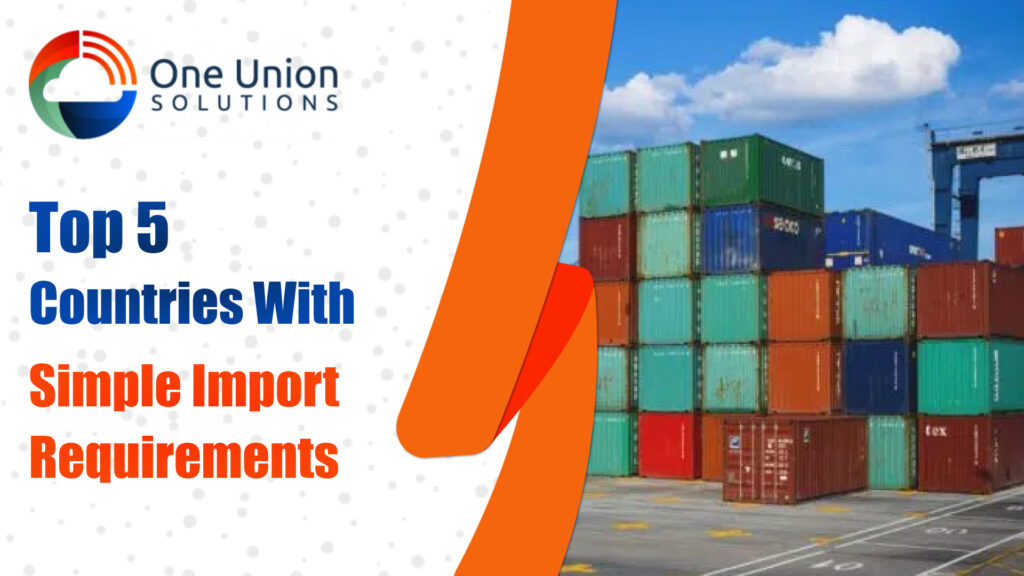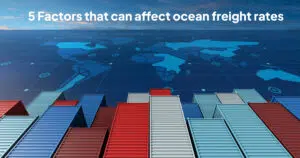As you may have inferred from reading several of our earlier articles about import destinations, trade barriers may provide significant challenges when importing products. A convoluted array of paperwork, licenses, and laborious protocols must be adhered to in several nations to facilitate the seamless import of cargo, including technology.
This time, we are concentrating on five nations that are the easiest to import into. These are the nations where, provided you have an in-country importer of record, importing technological items is relatively easy and doesn’t need any particular conditions or criteria.
1. Japan
The Japanese have very stringent safety regulations. To ensure that safety precautions are implemented that are adequate for Japan’s requirements both at the time of domestic distribution and in the exporting nation, as well as throughout the importation process, local authorities check imported food under the ministry’s supervision.
Japan is not alone in its employment of import controls as a means to strike a balance between the development of the home industry and international trade cooperation.
2. Singapore
Singapore ranks highest when it comes to international commerce. Your import-export company will be labeled a transshipment agency if it engages in product transit via its Singaporean operations.
3. United States of America
To get customs clearance from CBP, importers and their products must take the requisite entry, inspection, valuation, classification, and clearing processes.
4. Switzerland
Switzerland’s many international treaties make it relatively easy to bring in goods from other nations. However, several regulations must be followed for foreign goods to be legally sold in the nation. The specifics of these criteria change based on the kind of goods being evaluated. Drugs, cosmetics, and cleaning supplies are just a few items that must meet stringent criteria before they may be imported and sold in Switzerland for health and safety, environmental and consumer protection, and conformity with international and national standards.
Legislators are responsible for determining the appropriate conformity assessment processes to be used, considering the possible risks posed by a particular product. These measures are critical because they ensure the safety of Swiss consumers and ensure that imported goods are of a high enough quality to warrant purchase. However, the import rules and restrictions change based on the place of export and the specific commodity being imported. The following are a few exceptions to remember while importing goods into Switzerland.
5. United Arab Emirates
You must be registered with UAE Customs and possess a valid trade license issued by a UAE license-granting body. The Economic Department of each Emirate is the proper contact for obtaining the necessary trade license. The Federal Customs Authority (FCA) of the United Arab Emirates is the country’s official customs authority. In addition, appropriate documents must accompany all commodities for the UAE Customs Authority to approve their entrance into the nation.
A commercial invoice, packing lists, bills of lading, air waybills, shipper’s export declarations, and certificates of origin are all included in this. Customs laws are regularly revised to reflect the nation’s evolving requirements and circumstances and to guarantee that national customs laws adhere to international norms.
Advantages Of Import
- Greater Availability Of Products
Businesses may obtain more commodities than are locally accessible by importing items. This excellent range of items may assist businesses in providing a more comprehensive range of options to their clients, therefore increasing the appeal and competitiveness of their enterprises.
- Reduced Costs
Additionally, firms might reduce their expenses by importing goods. Businesses may profit from pricing differentials by importing goods from nations with cheaper labor or manufacturing expenses. Customers may pay less, which may raise demand and improve sales.
- Enhanced Caliber
There are instances when imported goods are superior to those sold locally. Businesses may enhance their image and foster customer loyalty by providing their consumers with higher-quality items by importing these products.
Advantages From Exporting
- A Rise In Sales
By entering new markets, exporting goods may assist companies in growing their revenues. Businesses may expand their consumer base and income by exporting their goods to people who might not have access to them locally.
- A Broadening Of
Exporting goods may also assist companies in expanding their clientele and lessening their dependency on a particular market or nation. This may guarantee company continuity and lessen the risk of market changes.
- Increased Scale Economies
Businesses may boost their production volumes and get better economies of scale by exporting their goods. This may lower manufacturing costs and boost profitability for enterprises.
Conclusion
You should also be aware of any entry criteria, such as those of other federal agencies, unique to the material you are importing or exporting. A vital part of international commerce, import and export, have the potential to help companies and nations in many ways.
Businesses may increase their profitability and competitiveness by expanding their product offerings, cutting expenses, raising supply chain diversity, and gaining access to new technology.







